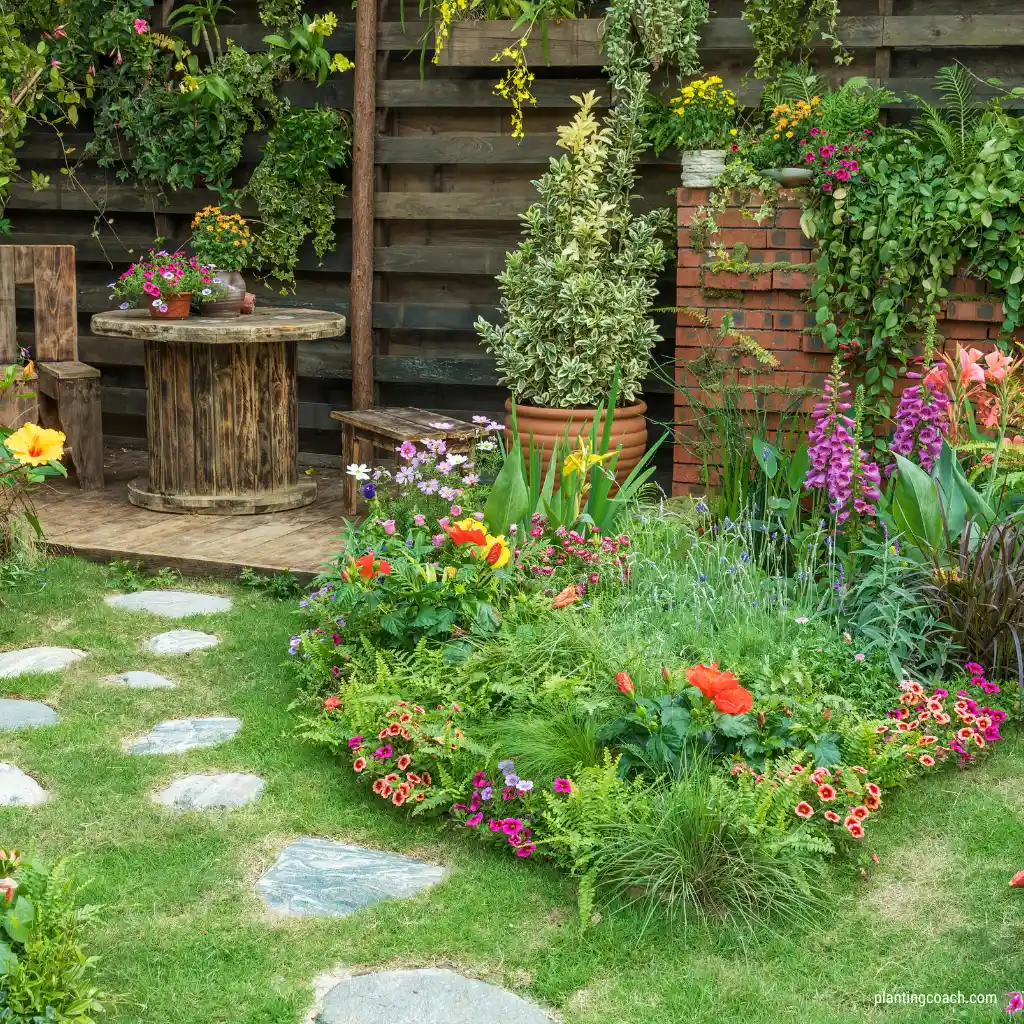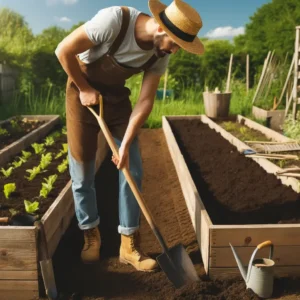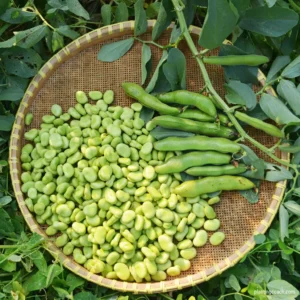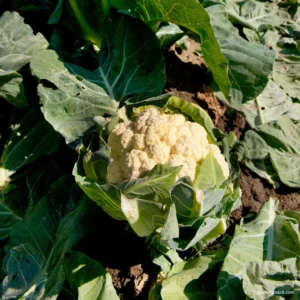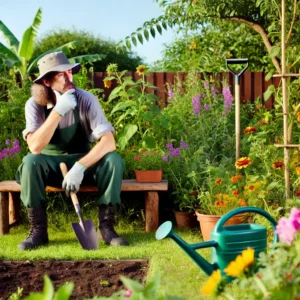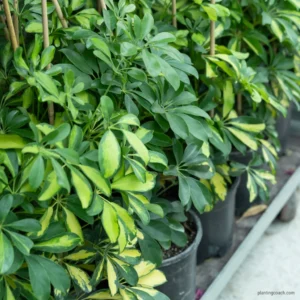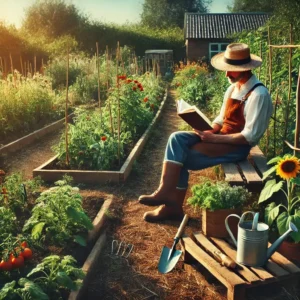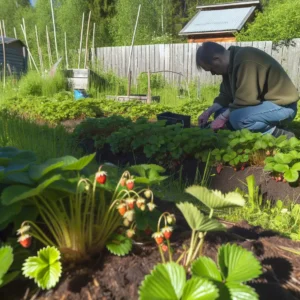Have you ever wondered how some gardens look so lush and vibrant while others struggle to thrive? Understanding How To Make Plants Grow Faster and Bigger is a game-changer for any gardener. Plants can transform spaces, providing beauty, food, and health benefits. However, getting them to grow quickly and healthily often requires more than just planting a seed and watering it occasionally. This article will explore the ten most essential, proven methods to boost your plants’ growth and health. By implementing these strategies, you’ll not only see your plants grow faster and bigger but also enjoy a more fruitful and satisfying gardening experience.
Understanding Plant Growth
How Fast Do Plants Grow?
The speed at which plants grow depends on several factors, including the species, environmental conditions, and care they receive. Some plants, like bamboo, can grow several inches a day, while others, like slow-growing trees, may take years to mature. Understanding these growth patterns is crucial for setting realistic expectations and providing the best care. Annuals like tomatoes and marigolds tend to proliferate, completing their life cycle in one growing season. Perennials, like peonies and fruit trees, may take longer to establish but can live for many years.
Factors such as genetics, climate, and soil quality play significant roles in growth rates. Fast-growing plants often have efficient photosynthesis processes and robust root systems that allow them to absorb nutrients and water rapidly. Conversely, slower-growing plants might be more focused on establishing strong, long-lasting structures. By understanding these variations, you can better plan your garden and provide the right conditions for each type of plant.
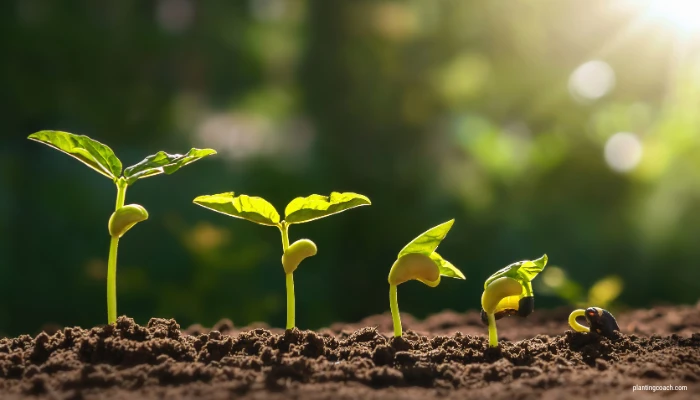
Key Factors Influencing Plant Growth
To make plants grow faster and bigger, you need to understand the fundamental factors influencing their growth. These include:
Light: Essential for photosynthesis, the process by which plants convert sunlight into energy. Without adequate light, plants cannot produce the food they need to grow.
Water: Vital for nutrient transport and cellular functions. Water helps dissolve nutrients in the soil, making them accessible to the plant roots.
Soil: Soil provides nutrients and support. The quality of the soil determines how well plants can access the necessary minerals and nutrients.
Nutrients: Essential elements for growth. Key nutrients include nitrogen, phosphorus, and potassium, each playing a critical role in different aspects of plant health.
Temperature: Temperature influences metabolic rates. Plants have optimal temperature ranges where they grow best; too hot or too cold can stress the plants.
Humidity: Affects water uptake and transpiration. High humidity can reduce water loss, but too much can lead to fungal problems.
Understanding and optimizing these factors will significantly impact how quickly and robustly your plants grow.
How To Make Plants Grow Faster and Bigger? 10 Actionable Ways
1. Optimize Light Conditions
Light is one of the most critical factors for plant growth. Ensure your plants get adequate sunlight, which varies by plant type. For indoor plants, consider using artificial grow lights, especially during shorter winter days. Different plants have varying light requirements, ranging from full sun to partial shade. Full-sun plants require at least six hours of direct sunlight daily, while shade-tolerant plants may only need a few hours of indirect light.

Tip: Position plants where they receive the maximum amount of light, such as south-facing windows for indoor plants. For outdoor gardens, observe the sun patterns and plant accordingly. Reflective surfaces can also help increase light exposure for indoor plants. Using timers for grow lights ensures plants receive consistent lighting, which is crucial for their growth cycles.
2. Ensure Proper Watering Techniques
Watering correctly is vital. Both overwatering and underwatering can harm plants. Learn to recognize each sign and adjust your watering schedule accordingly. Overwatering can lead to root rot, while underwatering can cause wilting and nutrient deficiencies. The type of plant, soil, and environment should be ordered around the best watering practices.
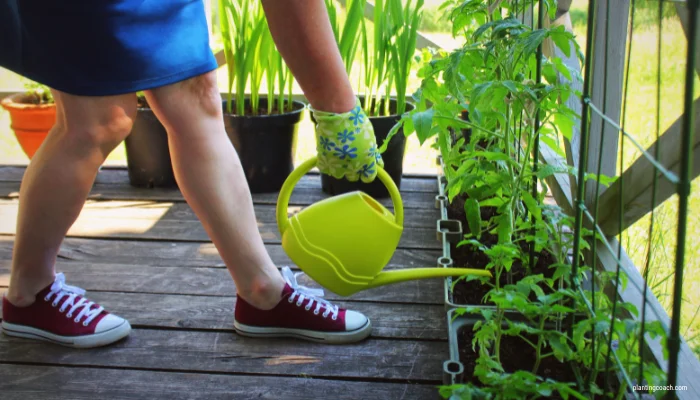
Tip: Water deeply but infrequently, allowing the soil to dry out slightly between waterings. This encourages roots to grow deeper, making plants more drought-resistant. For container plants, ensure pots have drainage holes to prevent water from accumulating at the bottom. Using mulch can help retain soil moisture and reduce the frequency of watering. Drip irrigation systems can provide a steady supply of water directly to the roots, minimising evaporation and ensuring efficient use of water.
3. Improve Soil Quality
Good soil is the foundation of healthy plants. Use well-draining, nutrient-rich soil to give your plants the best start. Regularly amend your soil with organic matter like compost to maintain its fertility. Healthy soil supports root growth and helps plants absorb nutrients more effectively. Soil structure, pH level, and nutrient content are all crucial for plant health.
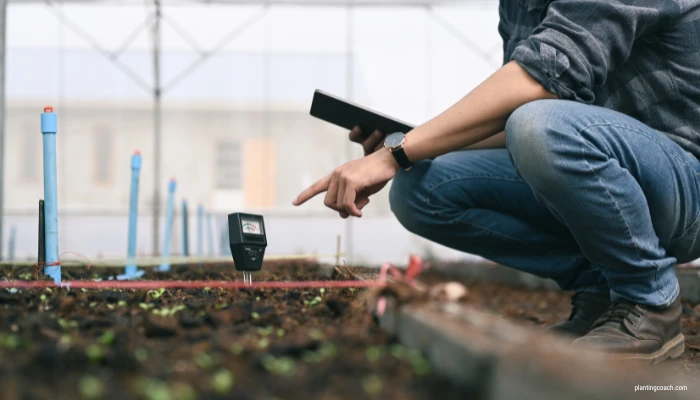
Tip: Conduct a soil test to determine its nutrient content and pH level, then adjust as needed. Adding organic matter improves soil structure, retains water, and provides essential nutrients. Regularly rotating crops and using cover crops can also help maintain soil health by preventing nutrient depletion and reducing soil erosion.
4. Use High-Quality Fertilizers
Fertilizers provide essential nutrients that might be lacking in the soil. Choose the correct type of fertilizer for your plants and follow the recommended application rates. There are various types of fertilizers, including organic and synthetic options, each with its advantages. Organic fertilizers release nutrients slowly, improving soil health over time, while synthetic fertilizers provide immediate nutrient availability.
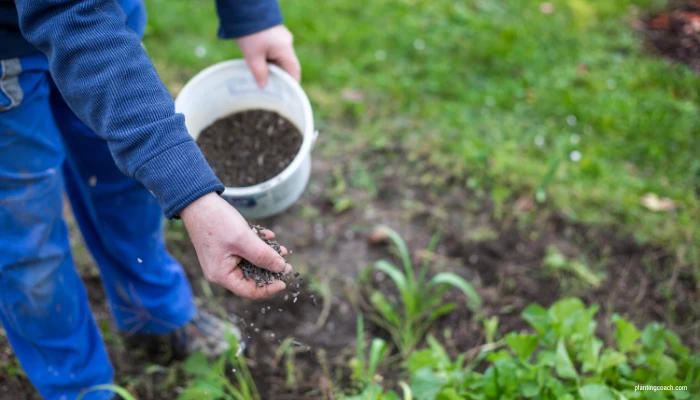
Tip: Use slow-release fertilizers to provide a steady supply of nutrients over time. Be mindful of the NPK ratio (nitrogen, phosphorus, potassium) on the fertilizer label, as different plants have different nutritional needs. Over-fertilizing can harm plants, so it’s essential to follow the manufacturer’s instructions and adjust based on the specific requirements of your plants.
5. Implement Proper Pruning and Trimming
Pruning encourages plants to grow faster by removing dead or diseased parts and stimulating new growth. It also helps shape the plant and improve air circulation. Regular pruning can prevent disease spread, promote a healthier structure, and boost flowering or fruiting. Each plant type has its specific pruning requirements, so it’s essential to understand your plants’ needs.
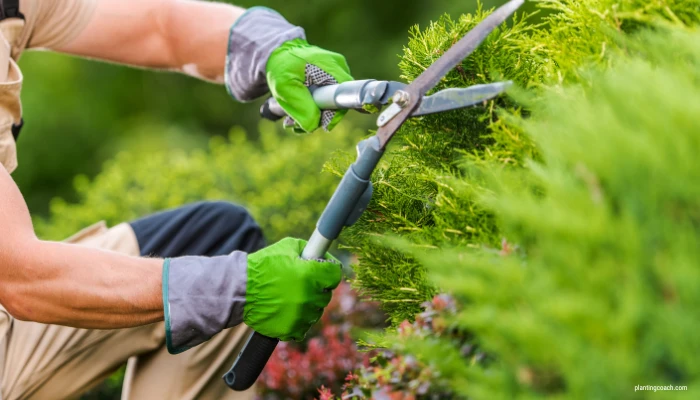
Tip: Prune in the growing season for most plants, and always use clean, sharp tools to prevent damage and disease. Sanitize your pruning tools before and after use to prevent the spread of diseases. Removing weak or crossing branches allows more light and air to reach the plant’s interior, promoting better overall health.
6. Control Pests and Diseases
Pests and diseases can severely hinder plant growth. Regularly inspect your plants and take prompt action if you notice any issues. Early detection and treatment are crucial to preventing significant damage. Common pests include aphids, spider mites, and caterpillars, while diseases can range from fungal infections to bacterial blights.
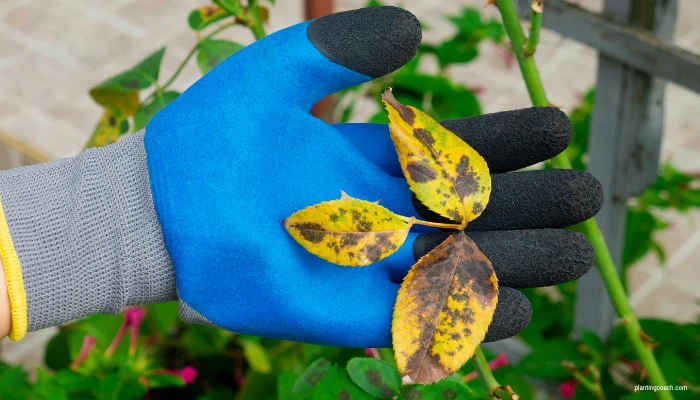
Tip: To protect your plants, use organic pest control methods, such as neem oil or insecticidal soap. Encourage beneficial insects like ladybugs and lacewings, which prey on harmful pests. Regularly cleaning garden tools and removing diseased plant debris can also help prevent the spread of pathogens.
7. Use Growth-Promoting Supplements
Supplements like compost tea and plant hormones can give your plants an extra boost. These products improve nutrient uptake and stimulate growth. Compost tea is rich in beneficial microorganisms, while plant hormones like auxins and gibberellins can promote cell division and elongation.
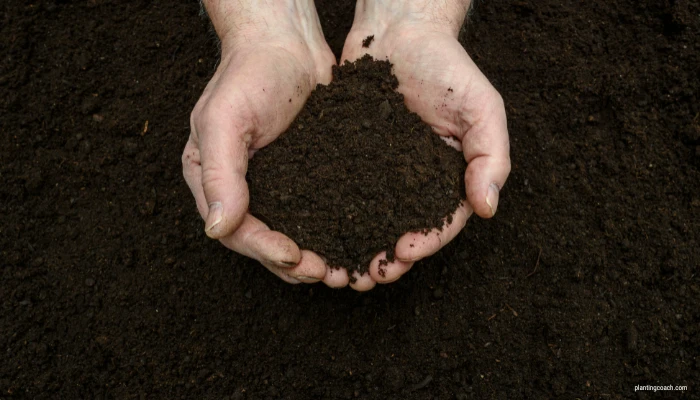
Tip: Apply these supplements during the active growing season for best results. Follow the recommended application rates and timings to avoid overuse, which can harm plants. Regularly rotating supplements can prevent nutrient imbalances and ensure comprehensive plant health.
8. Maintain Optimal Temperature and Humidity
Different plants have varying temperature and humidity requirements. Ensure your plants are in an environment that suits their needs. Temperature affects metabolic processes, while humidity influences water uptake and transpiration. Extreme temperatures or improper humidity levels can stress plants, leading to poor growth or even death.

Tip: Use a thermometer and hygrometer to monitor and adjust the growing conditions as necessary. Using a humidifier or dehumidifier for indoor plants can help maintain optimal humidity levels. Outdoor plants may benefit from shading or mulching to regulate soil temperature and moisture.
9. Provide Adequate Space for Growth
Plants need space to grow both above and below the ground. Overcrowding can lead to competition for resources and stunted growth. Proper spacing ensures that each plant has enough access to light, water, and nutrients. Root crowding can impede nutrient uptake and increase the risk of spreading disease.
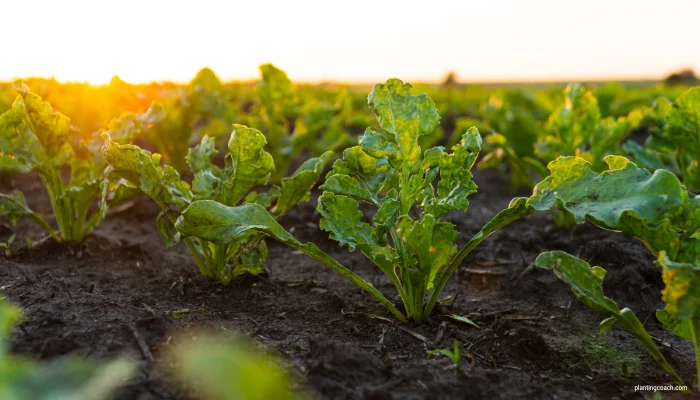
Tip: Follow spacing guidelines on seed packets or plant labels and consider repotting plants that have outgrown their containers. Regularly thinning seedlings can also help reduce competition and promote healthier growth. Using raised beds or container gardening can help optimise space and improve soil conditions.
10. Utilize Companion Planting
Companion planting involves growing compatible plants together to benefit each other. This can improve growth, deter pests, and maintain soil health. Some plants release chemicals that repel pests, while others can promote nutrient availability or provide physical support.
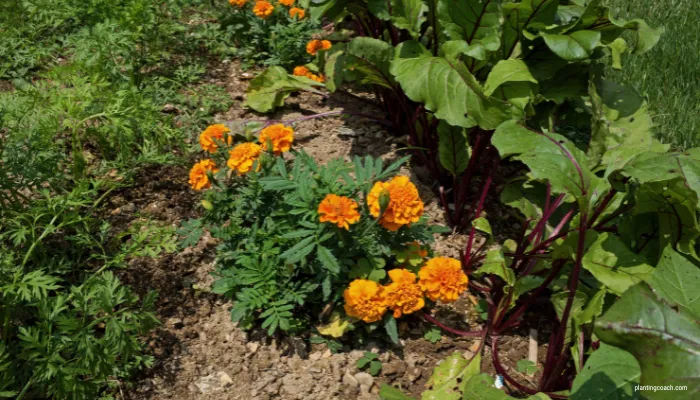
Tip: Research effective companion planting combinations, such as planting basil with tomatoes to repel pests. Companion planting can also help maximise space usage and create a more diverse and resilient garden ecosystem. Regularly rotating plant combinations can prevent the buildup of pests and diseases.
Common Mistakes to Avoid
Overwatering or Underwatering
Both can stress plants and hinder growth. Overwatering can lead to root rot and oxygen deprivation, while underwatering can cause wilting and nutrient deficiencies. Understanding the specific water needs of your plants is crucial for maintaining their health.
Tip: Ensure you’re watering correctly based on your plants’ needs. Check soil moisture regularly and adjust your watering schedule accordingly. Using a moisture meter can help you determine when to water your plants accurately.
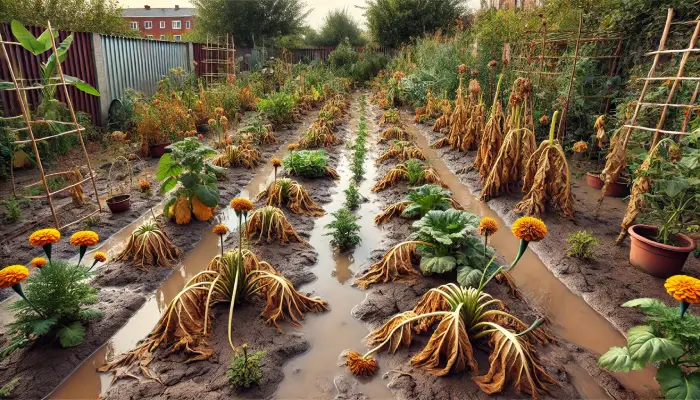
Ignoring Soil Health
Regularly test and amend your soil to maintain its health. Neglecting soil health can lead to nutrient deficiencies and poor plant growth. Soil health is integral to plant growth, as it provides the necessary nutrients, water, and support.
Tip: Incorporate organic matter such as compost or well-rotted manure to improve soil structure and fertility. Regularly rotating crops and planting cover crops can also help maintain soil health. Avoiding soil compaction and practising no-till gardening can further ensure perfect soil quality.
Neglecting Plant Nutrition
Ensure your plants receive balanced nutrients by using appropriate fertilizers and supplements. Lack of essential nutrients can stunt growth and make plants more susceptible to disease. Nutrient deficiencies can manifest in various symptoms, including yellowing leaves, stunted growth, and poor flowering or fruiting.

Tip: Conduct regular soil tests to monitor nutrient levels and adjust fertilization practices accordingly. Using a balanced fertilizer with essential micronutrients can help prevent deficiencies. Incorporating organic fertilizers like compost or worm castings can also provide a steady supply of nutrients.
Summary
To recap, ensuring optimal plant growth involves several key practices: optimizing light conditions, proper watering techniques, improving soil quality, using high-quality fertilizers, implementing proper pruning and trimming, controlling pests and diseases, using growth-promoting supplements, maintaining optimal temperature and humidity, providing adequate space for growth, and utilizing companion planting. Following these tips, you can create an ideal environment for your plants to thrive, resulting in faster, bigger, and healthier growth, as understanding and meeting the specific needs of your plants is crucial for successful gardening.
FAQ
Q1: How fast do plants grow?
The growth rate varies by species and environmental conditions. Some plants grow rapidly, completing their life cycle in a few months, while others take years to mature. Factors such as light, water, nutrients, and temperature play significant roles in determining growth rates.
Q2: What helps plants grow faster?
Key factors include adequate light, proper watering, quality soil, and balanced nutrition. Providing optimal growing conditions for each plant’s needs will significantly accelerate its growth rate.
Q3: What makes plants grow faster and bigger?
Providing optimal light, water, nutrients, and care, along with regular pruning and pest control, helps plants grow faster and bigger. Using growth-promoting supplements and ensuring proper environmental conditions contribute to robust plant growth.
Q4: How often should I water my plants?
Watering frequency depends on the plant type and environmental conditions. Generally, water deeply but allow the soil to dry slightly between waterings. Monitoring soil moisture and adjusting your schedule based on seasonal changes can help maintain optimal hydration levels.
Q5: Can I use household items to help plants grow?
Yes, items like coffee grounds, eggshells, and banana peels can benefit plants when used appropriately. These household items can provide essential nutrients and improve soil health, promoting faster and more significant plant growth.
